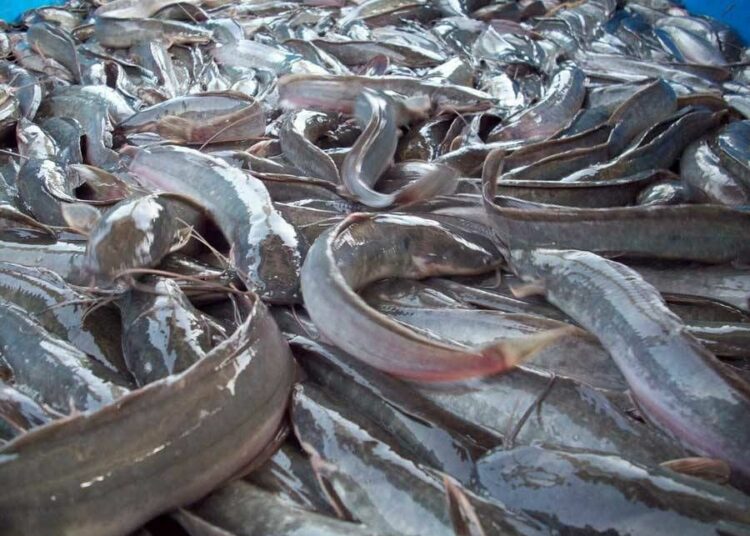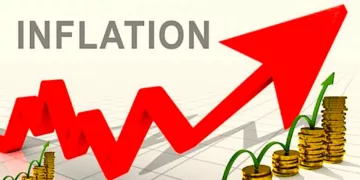The federal government has said it is collaborating with major international bodies to bridge the fish insufficiency gap, thereby boosting diet, revenue, and another agricultural value chain, just as it targets the production of 1.3 metric tonnes to meet local consumption.
The minister of Marine and Blue Economy, Adegboyega Oyetola stated this in Abuja on Tuesday, while speaking at a two-day validation workshop on the National Fisheries and Aquaculture Policy of Nigeria.
The minister further noted that the Fisheries and Aquaculture sector have encountered numerous challenges, such as illegal fishing, overfishing, environmental degradation, and inadequate infrastructure and technological advancements, noting that “to effectively tackle these issues and fully harness the potential of Nigeria’s aquatic resources, the Federal Ministry of Marine and Blue Economy, in collaboration with WorldFish and IFPRI, has developed a comprehensive National Fisheries and Aquaculture Policy.
“Our nation, blessed with a coastline of 853km and 10,000km of inland waterways, is also rich in natural resources. The creation of the Federal Ministry of Marine and Blue Economy to harness the resources of the ocean sustainably with the agenda of President Bola Tinubu for sustainable socio-economic development and national prosperity.”
Also speaking at the event, monitoring and evaluation specialist at the International Food Policy Research Institute (IFPRI), Adetunji Fasoranti said that the Nigeria’s economy has historically relied on crude oil, but recent fluctuations in the market and the need for diversification have led to a strategic shift toward agriculture, including fisheries and aquaculture, as complementary sectors.
This approach he said, leverages Nigeria’s agricultural potential, aiming to reduce import dependency, boost rural employment, and enhance food security, through investment and robust policies, particularly in fisheries and aquaculture, Nigeria seeks a resilient, diversified economy that mitigates oil dependency and promotes sustainable growth.
According to him, “At IFPRI, we are committed to developing inclusive and sustainable policies that address global food security, nutrition, poverty reduction, and end hunger and malnutrition in developing countries. We support governments and partners in evidence-based policy design and implementation.
“I am very pleased to see the attention to data and evidence in the review and drafting process of this national fisheries and aquaculture policy and the robust M&E framework and indicators being proposed in the policy document draft. This is expected to allow for monitoring and subsequently provide the basis for the evaluation of the policy implementation processes and impacts”.
In his contributions, Sunil Siri of ‘World Fish’, revealed that the country is in shortage of about 75 per cent of local consumption to bridge the gap of 25 per cent of its current production.
He said that the world body is committed to ensuring that Nigeria meets its food security goals.





